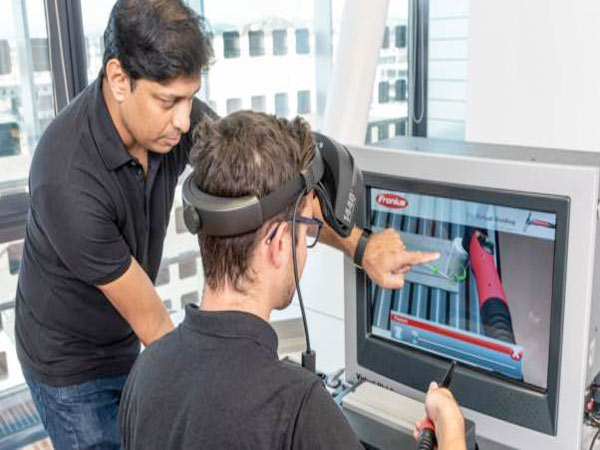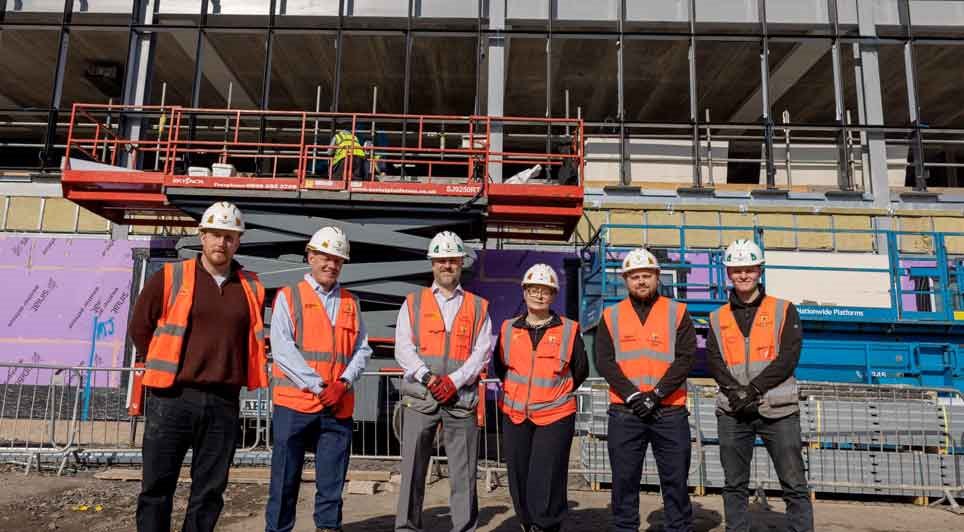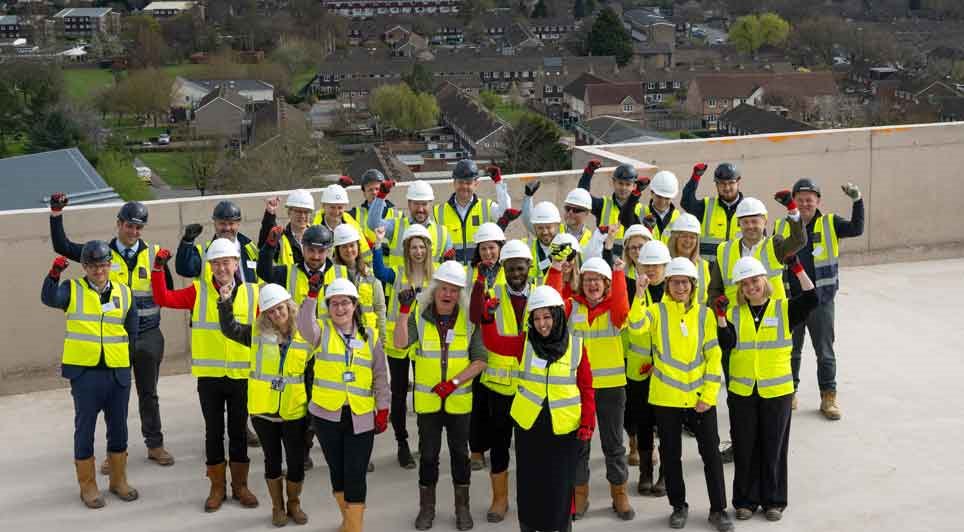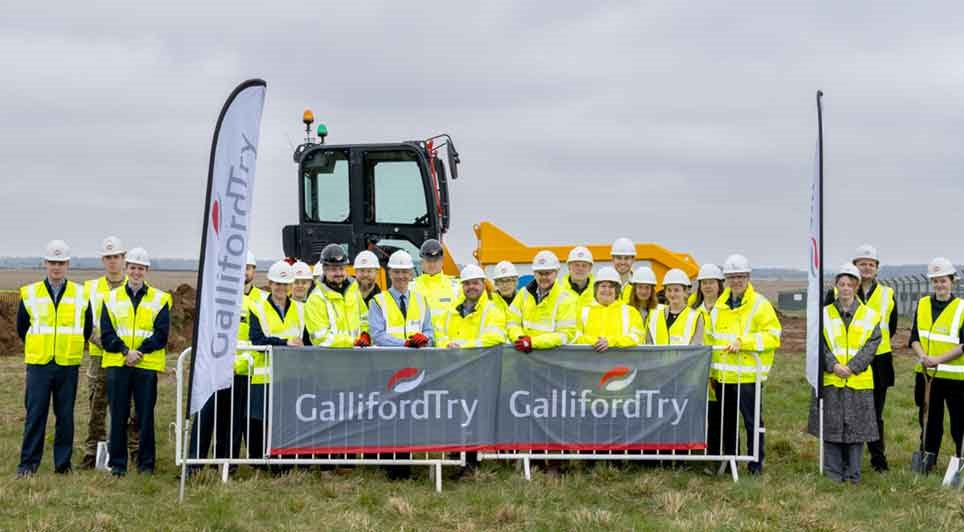No noise, no smoke, no heat, no material input – Fronius Virtual Welding offers a totally safe and sustainable framework for training new welders. Similar to a flight simulator, 3D glasses and amazing graphics enable a realistic welding experience. The result is high-quality welder training that also saves on costs.
Author: Philipp Schlor, Product Manager Virtual Welding, Fronius International GmbH
Comprehensive training concept: theory and practice
With Virtual Welding, Fronius has developed a sophisticated training concept for providing theoretical knowledge about MIG/MAG, TIG, MMA welding and more, with a testing system to assess learning progress. A ranking list encourages trainees to enter into some friendly competition with one another.
The practical welding tasks in the Fronius Virtual Welding curriculum are based on training by the International Institute of Welding and therefore meet the international standard for training welders.
Ghost: the trainer always at your side
To master their manual skills, trainees first practise with a virtual instructor known as the Ghost. Step by step, it shows the right welding speed, distance and tilt angle of the welding torch relative to the workpiece, giving the trainee immediate feedback. The task gradually increases in difficulty until finally welding is completed without the Ghost in a realistic simulation. The Virtual Welding system records the welding operations, making it possible to play them back at a later date and analyse them together with a real trainer.
This combination of guided practical exercises and theoretical units enables trainees to complete much of their training independently using the welding simulator. They acquire basic knowledge and fundamental manual skills before moving on to the real welding system. This enables training centres to improve the quality of their training while also reducing costs.
Field study: Fohnsdorf Training Centre
The Fohnsdorf Training Centre is one of the most modern and innovative professional training establishments in Austria. The Fohnsdorf Training Centre has been using Virtual Welding in its metal engineering workshops since 2010. It now carries out 30 percent of its practical welder training by means of simulation, making simulators a mainstay of the training curriculum.
A field study was commissioned to research the impact of these simulators on training efficiency. It analysed data from:
• 13 students
• 2 weeks of training comprising 30% Virtual Welding and 70% real welding
• Fillet welds (135 P FW FM1 S PB ml) and pipe fillet welds (135 T FW FM1 S PB sl), which are welded in real and virtual welding operations
The metal, gas, welding wire and energy consumption of the 1,577 real weld seams were analysed to determine the savings potential of training with Virtual Welding. This was then compared with the data from 1,733 virtual weld seams.
Better quality of training: 23% more practice time
The Fohnsdorf Training Centre boosts welding time by 23 percent with Virtual Welding. This makes it possible to produce three times as many seams as can be produced in the welding booth in the same period of time. This is mainly because virtual welding eliminates time-consuming preparation of the test sheets as well as cooling of the sheets and cleaning of the weld seams. With a simulated welding seam taking just one click, there is more time for mastering and practising the required manual skills.
However, it is not just practice time that receives a boost: "We believe that Virtual Welding makes a significant contribution towards improving training quality. The Ghost provides every student with one-on-one tuition and immediate visual feedback, something that a real-life trainer is simply unable to do," says Hannes Krempl, a trainer in welding technology and transport at the Fohnsdorf Training Centre.
Cost savings: material costs reduced by €230
In addition to the quality of the training, the welding simulator also increases cost effectiveness; savings on consumables such as gas, wire and sheets make the training significantly cheaper. “In total, we save around 230 euros per participant on material costs – despite the longer arc time,” says Krempl. Virtual welder training ensures maximum effectiveness using minimal resources.
www.fronius.com
Construction News
04/05/2021
Welder Training Field Study: Simulators Improve Quality And Reduce Costs


02/04/2025
Hinckley and Bosworth Councillors have approved plans for more than 300 new homes across two key locations, marking a significant expansion in local housing development.
Persimmon Homes North Midlands has received the green light for 81 new homes in Earl Shilton. Of these, 16 homes will be availabl

02/04/2025
Wates has completed the Welcome Building®, a 207,000 sq ft, nine-storey commercial space in Bristol.
The project, developed as a joint venture between Trammell Crow Company and EPISO 5, a fund managed by Tristan Capital Partners, sets a new benchmark for sustainability, wellbeing and community eng

02/04/2025
Skanska, in partnership with an Arup and SYSTRA 50/50 joint venture, has secured a position as a strategic delivery partner on Network Rail’s Eastern Region Development and Design Partnership Framework (DDPF).
The £300 million framework spans five years, with the potential for a three-year extensio

02/04/2025
New lifts and a footbridge have officially opened at Newtown station in Powys, making both platforms fully accessible to all passengers for the first time.
Network Rail and contractor AmcoGiffen began work on the project in December 2023. While the main infrastructure is now complete, additional wo

02/04/2025
Pexhurst has wrapped up a strong first quarter of 2025, completing several refurbishment projects across multiple sectors with a combined value of nearly £15 million.
The projects supported clients in Pexhurst's key sectors, industrial and logistics, as well as office refurbishments, across the Sou

02/04/2025
Willmott Dixon joined officers and staff from Lancashire Police, alongside Lancashire Police and Crime Commissioner (PCC) Clive Grunshaw, to celebrate the topping out of the new Pendle Police Station in Nelson.
With the external structure now complete, the focus will shift to interior work to ensur

02/04/2025
The first affordable homes in the regeneration of Oxford's Blackbird Leys are set to welcome new residents from this summer.
A total of 84 shared ownership homes, currently being built by Peabody and Oxford City Council at Knight’s Road, will be released in phases between this summer and next sprin

02/04/2025
Ecocem, Europe's leader in low-carbon cement technologies, has announced the signing of a partnership agreement with TITAN Group, a leading international business in the building and infrastructure materials industry, to co-develop and deliver innovative low-carbon cements.
Focusing initially on th

01/04/2025
Galliford Try's Building East Midlands business has officially broken ground on a £63 million Single Living Accommodation (SLA) project at RAF Digby, Lincolnshire.
The historic base, the Royal Air Force's oldest station established in 1918, will see the construction of four new Junior Ranks SLA bu

01/04/2025
The regeneration of Nottingham city centre has taken a significant step forward following an agreement for Homes England to acquire the Broad Marsh site from Nottingham City Council.
As the Government's housing and regeneration agency, Homes England will take ownership of the former shopping centre
 UK
UK Ireland
Ireland Scotland
Scotland London
London











